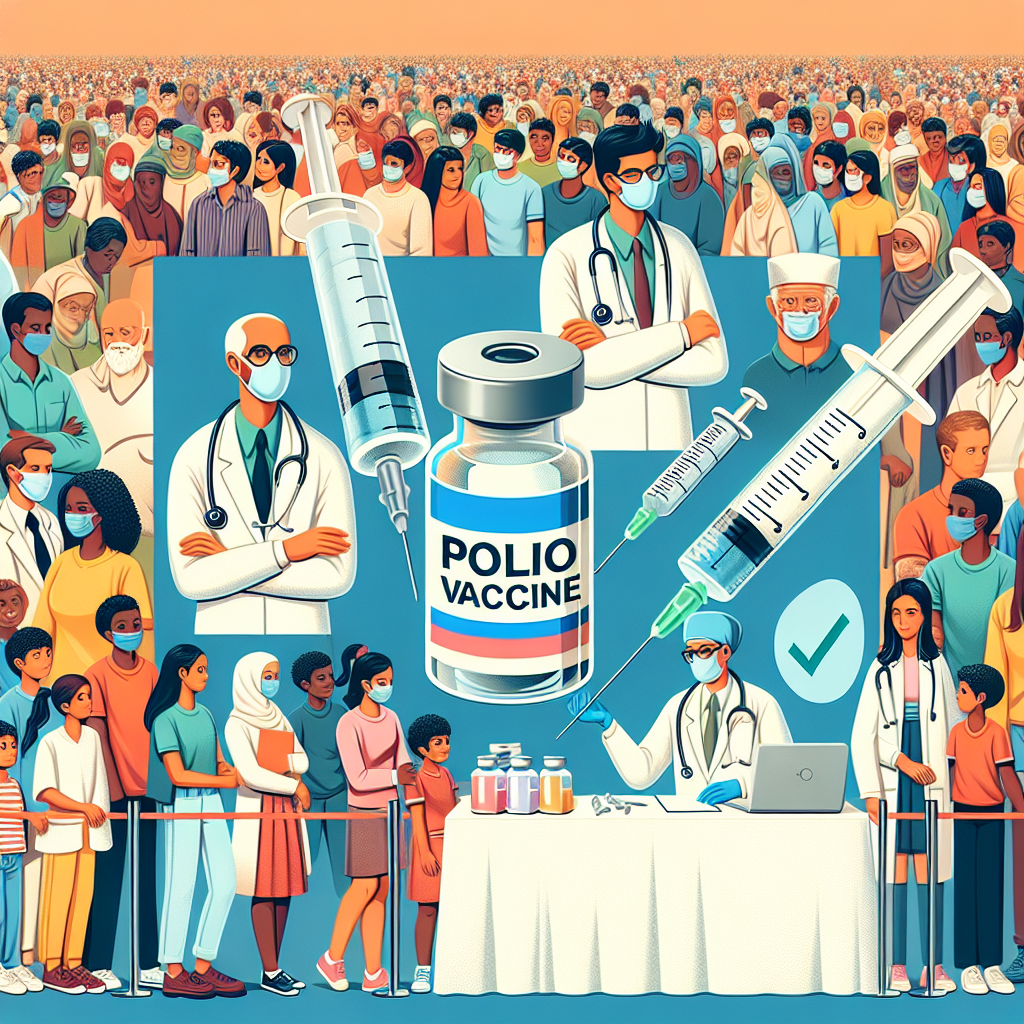Gaza: Final phase of polio vaccine campaign reaches ravaged north
To interrupt poliovirus transmission, at least 90 per cent of all children in every community and neighbourhood must be vaccinated, which will be challenging to achieve given the situation, the agencies said.

The long-awaited final phase of a UN-supported polio vaccine campaign began early Saturday morning in bombarded and besieged northern Gaza, with the goal of inoculating more than 100,000 children against the paralysing virus, according to UN agencies on the ground.
“To overcome challenges posed by the volatile security situation and constant population movement, robust micro plans have been developed to ensure the campaign is responsive to the significant population shifts and displacement in the north following the first round in September,” the UN agencies for health, WHO, and for children, UNICEF, said in a statement.
UN organizations and partners began phase one in September and have had more than 200 teams on stand-by since 23 October to unroll the campaign’s final round, which had been delayed by constant Israeli airstrikes, clashes on the ground and no assurances of the required humanitarian pauses to stop the fighting during the delivery of the vaccines.
Polio had been eradicated in the Gaza Strip 25 years ago, but the ongoing war triggered multiple health crises, with a 10-month-old being diagnosed with the virus earlier this year, prompting health officials to organize a campaign in the war-torn Israeli-occupied territory.
Restrictions persist
The campaign will be delivered by 216 teams across 106 fixed sites, 22 of which have been added to ensure increased availability of vaccination in areas where recently displaced people are seeking refuge, according to UN agencies. There will also be 209 social “mobilisers” deployed to engage communities and raise awareness around vaccination efforts, they explained.
However, the agencies warned that health workers will not be able to reach all of the children who require a final dose of the vaccine.
“The final phase of the campaign had aimed to reach an estimated 119,000 children under 10 years old in northern Gaza with a second dose of novel oral polio vaccine type 2 (nOPV2), however, achieving this target is now unlikely due to access constraints,” the agencies warned.
Despite the lack of access to all eligible children in northern Gaza, the Polio Technical Committee for Gaza, which includes the Palestinian Ministry of Health, WHO, UNICEF, the UN agency for Palestine refugees, UNRWA and partners, decided to resume the campaign.
The plan aims to mitigate the risk of a long delay in reaching as many children as possible with polio vaccines and the opportunity to vaccinate those recently evacuated to Gaza City from other parts of the northern Strip.
Extended humanitarian pauses
The time period for the humanitarian pauses has been extended by two hours and is expected to run from 6am to 4pm daily, WHO and UNICEF said. As in the first two phases, vitamin A will also be co-administered to children between age two and 10 in the north to help boost overall immunity.
The campaign in northern Gaza follows the successful implementation of the first two phases of the second round in central and southern Gaza, which reached 451,216 children – 96 per cent of the target in these areas.
A total of 364,306 children aged between 2 and 10 years have received vitamin A so far in this round.
Regional impact
To interrupt poliovirus transmission, at least 90 per cent of all children in every community and neighbourhood must be vaccinated, which will be challenging to achieve given the situation, the agencies said.
A delay in administering a second dose of nOPV2 within six weeks reduces the impact of two closely spaced rounds, decreasing immunity, according to the UN health agency.
WHO has also cautioned that having a significant number of children miss out on their second vaccine dose seriously jeopardises efforts to stop the transmission of the virus and could also lead to further cases in the Gaza Strip and neighbouring countries.
- READ MORE ON:
- Gaza










